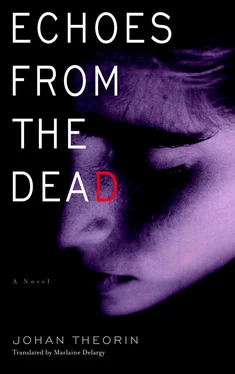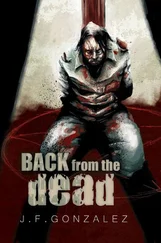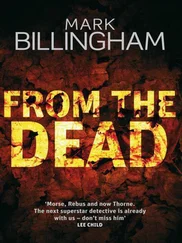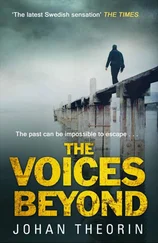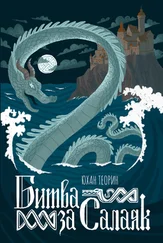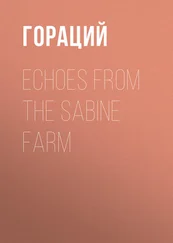Julia didn’t even remember drinking the first glass of wine. She’d seen Astrid pour it out in front of her at the table in Astrid’s kitchen, seen the red liquid swirling around in the glass and had reached out her hand in anticipation — then suddenly the glass was standing empty on the table. She had the taste of wine in her mouth and a warming dose of alcohol spreading through her body, and the feeling that she had become reacquainted with an old, dear friend.
Outside Astrid’s kitchen window the sun was going down, and Julia’s legs were aching after a long bike ride along the coast.
“Would you like another glass?” asked Astrid.
“Yes, please,” said Julia, as calmly and evenly as she could manage. “That was lovely.”
She would of course have drunk the wine even if it had tasted of vinegar.
She tried to drink the second glass much more slowly. She took just a couple of sips, then placed it back on the table and breathed out.
“Difficult day?” asked Astrid.
“Quite difficult,” said Julia.
But in fact nothing much had happened.
She’d cycled north along the coast to the neighboring village of Långvik and had lunch there. And after that she’d been told by an old egg seller on a little farm that her son Jens had been murdered. Not just dead and buried long ago — murdered.
“Quite a difficult day,” said Julia again, and emptied her second glass of wine.
The sky had been clear and full of stars the previous evening as Julia got ready for another night alone in the boathouse.
The stars felt like her only friends here by the deserted shore. The moon dangled like a splinter of gray-white bone in the east, but Julia had stood down on the coal-black shore looking at the stars for half an hour before she went up to the boathouse. From there she could see another reassuring light: the outside light at Astrid’s house on the opposite side of the road. The lights of the inhabited houses to the north and south along the coast were distant and almost as faint as the glow of the stars, but Astrid’s brightly burning light showed that there were other people out there in the darkness.
Julia had fallen asleep, unusually quickly and calmly, and had woken up feeling rested eight hours later to the sound of the waves moving back and forth on the shore, almost in time with her own breathing.
The rocky landscape was peaceful, and she had opened the door and looked at the waves without thinking of fragments of bone.
She went up to Gerlof’s cottage to wash and make some breakfast, and when she took a walk around the yard afterward she found an old bike behind the toolshed. Julia assumed it was Lena’s. It was rusty and needed oiling, but there was plenty of air left in the tires.
That was when she had decided to cycle northward to Långvik for lunch. In Långvik she would try to find an old man called Lambert, and apologize for having hit him many years earlier.
The coast road to the north was dusty and stony and full of deep holes, but it was possible to cycle along it. And the landscape was just as beautiful as it had always been, with the alvar on the right and the glittering water a few yards below the edge of the cliff on the left. Julia avoided looking over toward the far end of the quarry when she cycled past; she didn’t want to know if the pools of blood were still there.
After that her cycling trip was pure enjoyment, with the sun on one side and the wind at her back.
Långvik was five kilometers north of Stenvik, but it was bigger, and a completely different kind of village. There was a proper area for swimming with a sandy beach, a marina for pleasure boats, several bigger apartment houses in the center, and developments of summer cottages both at the north and south end of the village.
PLOTS FOR SALE it said on a sign by the side of the road. Building was still going on in Långvik: fences and markers and newly laid gravel tracks ran out onto the alvar, coming to an end among huge pallets of tiles encased in plastic and piles of treated timber.
There was also a harbor hotel, of course, running the length of the sandy beach and three stories high, with a big restaurant.
Julia ate her lunch of pasta in the restaurant with a vague feeling of nostalgia. She had danced here at the beginning of the sixties. The hotel had been smaller when Julia was a teenager, cycling there from Stenvik with her friends, but it had felt quite grand even then. There had been a big wooden veranda above the beach, and that was where they’d danced till midnight. American and English rock music, interwoven with the sound of the waves out in the darkness in the gaps between records. The smell of sweat, aftershave, and cigarettes. Julia had drunk her first glass of wine here in Långvik, and sometimes she’d had a lift home on a puttering moped late at night. Full speed through the darkness, no helmet, with a deep conviction that life could only get more and more fantastic.
The veranda was gone now, and the hotel had been enlarged, with bright, spacious conference rooms and its own swimming pool.
After lunch Julia had started to read the book Gerlof had given her, the one with the title Öland Crimes. In the chapter entitled “The Murderer Who Got Away,” she had read about Nils Kant and what he had done one summer’s day in 1945 out on the alvar, and what happened after that:
So who were the two men in uniform that Nils Kant executed in cold blood that beautiful day out on the alvar?
They were presumably German soldiers who had managed to get across the Baltic, fleeing the terrible battles in Kurzeme on the west coast of Latvia during the final phase of World War II. The Germans in Kurzeme were surrounded by the Red Army, and the only way to escape was to set off across the water in some kind of floating craft. The risks were great, and yet both soldiers and civilians chose to attempt to flee to Sweden from the Baltic lands at that time.
Nobody knows for certain, however. The two dead soldiers carried no documents or passports which could identify them, and their grave bore no names.
But they had left several traces. What Kant didn’t know when he left the two bodies lying out on the alvar was that a little green-painted motorboat with a Russian nameplate had been found abandoned in an inlet a kilometer or so south of Marnäs that same morning.
In the open boat, partly filled with water, were two German military helmets, dozens of rusty tins of food, a chamber pot, a broken oar, and a little tin containing Dr. Theodor Morell’s medical powder for Russian lice, produced in Berlin exclusively for soldiers of the Wehrmacht. Dr. Morell was Hitler’s own physician.
The discovery of the boat attracted attention — as does anything unusual that drifts ashore along the Öland coast — and thus many people in Marnäs knew before Kant did that there were strangers in the area. Some of them even set out to search, armed or unarmed.
Nils Kant had not buried the soldiers he had killed, or even covered their bodies. Corpses out on the alvar quickly attract scavengers, and the noise small animals and birds make as they squabble over their spoils can be seen and heard far and wide.
It was therefore only a matter of time before somebody searching out on the alvar found the dead soldiers.
When the waitress came to clear the table, Julia closed the book and looked pensively out over the deserted beach below the hotel.
The story of Nils Kant was interesting, but he was dead and buried, and she still didn’t know why Gerlof thought it was so important for her to read about him.
“Can I pay you now?” said Julia to the waitress.
“Yes, of course. That’ll be forty-two kronor.”
Читать дальше
